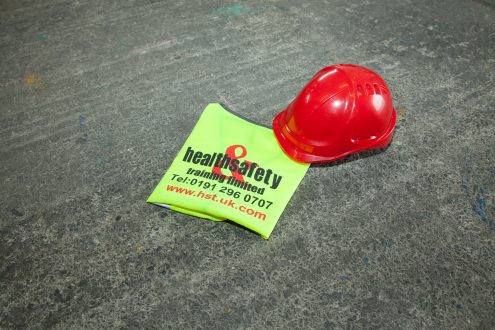The Health and Safety Kit: Hand Tool Safety
 Almost every industry, business and trade in the world uses some type of hand tool – from hammers and screwdrivers to Stihl saws and cutting discs, and even kitchen knives, garden forks and sports equipment.
Almost every industry, business and trade in the world uses some type of hand tool – from hammers and screwdrivers to Stihl saws and cutting discs, and even kitchen knives, garden forks and sports equipment.
We use this equipment every day, without even considering the associated hazards, but with thousands of minor and major accidents caused by improper use and poorly maintained tools, it’s easy to see why hand tools are one of the biggest causes of workplace injuries in the UK.
The Hazards
Hand tools used to carry out day to day work fall into the category of work equipment and as an employer you need to take reasonable steps to reduce or remove all risks presented by work equipment. The main risks or hazards relate to:
- Inappropriate tools for the job
Many accidents relating to hand tools occur when the user is given, or chooses, the wrong tools for the job at hand, e.g. a hand saw, when the task requires a cutting disc.
- Inadequate controls and safety guards
For many powered hand tools, the greatest risk is presented by the moving parts, so it’s essential any safety guards are fitted and used properly.
- Poorly maintained tools
Regular inspections, maintenance and serving is required to keep tools safe and avoid accidents, e.g. blunt blades slip more easily than sharp blades and can result in injury.
- Improper use and lack of training
Young people, new starters or inexperienced workers may lack awareness of potential risks and require proper training to ensure they can use work equipment safely.
- No personal protective equipment
As an employer it is your responsibility to provide workers with protective equipment to reduce the risk of injury, e.g. safety glasses, cut resistant gloves, etc.
The Law
As with all workplace risks, the Health and Safety at Work etc Act 1974 states that employers are ultimately responsible for ensuring employees, visitors and members of the public are kept safe as far as reasonably practicable, and this includes safe from risks presented by hand tools and work equipment.
In addition to this, most work equipment, including hand tools, are subject to the Provision and Use of Work Equipment Regulations 1998 (PUWER), the Electricity at Work Regulations 1989 and the Personal Protective Equipment at Work Regulations 1992.
HSE Inspectors are tasked with ensuring compliance with the relevant legislation in order to reduce the amount of accidents in the workplace related to work equipment.
Your Responsibilities
As an employer, your main responsibility in relation to health and safety is to ensure you carry out thorough and regular risk assessments that will help you to identify any risks presented by your work equipment. Every workplace is different and uses different equipment to complete day- to day work, so your risk assessment should be unique to your environment.
Risk Assessment
You must begin with an effective risk assessment of all hand tools and the associated hazards which will identify:
- Those most vulnerable to harm, e.g. new or untrained workers
- The level of risk, e.g. power tools cause more major injuries than manual tools
- The steps you’ve taken to reduce or remove the risks, e.g. training of staff
Available Training
No matter what your industry, you have a responsibility to provide adequate training for your staff. The type of training you could invest in includes:
- Risk assessment training that will ensure you have someone on your staff that can take responsibility for identifying and assessing risk.
- Individual equipment training for the tools used by your workers, such as specialist training for abrasive wheels or cutting discs.
- First aid training to ensure you have qualified first aiders on site in the event of an accident or injury.
- General health and safety training, for both workers and managers to help keep your workplace running smoothly and safely.
The team at Health and Safety Training Ltd are dedicated to helping you keep your workplace safe and legal, protecting both your workers from injury and your business from prosecution. With years of experience, we will tailor all our training to meet your individual requirements and we can either visit your workplace to deliver high quality training, or you can send your workers to us at our specialist training facility in Newcastle upon Tyne.
Simply give us a call today to find out more about our training courses or to discuss your health and safety requirements.
Health & Safety Week 2014 Dock Company Fined After Moving Operation Goes Wrong





